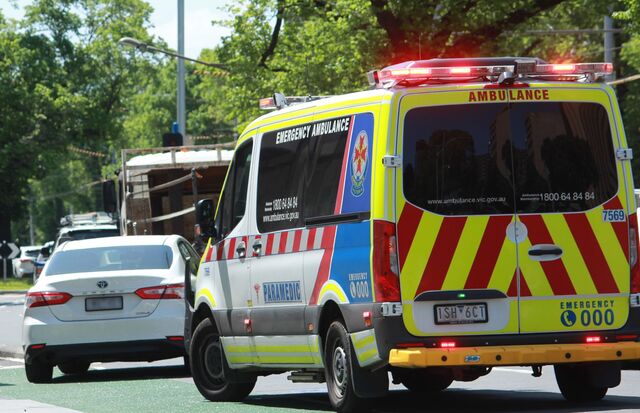Authorities have issued a warning about an infectious man suffering from measles, who visited Werribee train station and Pacific Werribee within the past week.
The state’s Chief Health Officer, Dr Brett Sutton, said the man – who is aged in his 30s and from overseas – is being treated and recovering in hospital.
Dr Sutton said the man attended multiple public areas in Melbourne and also took a Metro train from Southern Cross station to Werribee station between 10-11am on Sunday, August 25.
The man also took the route 170 bus between Werribee station and Pacific Werribee (Werribee Plaza) between 11am-midday the same day.
On Sunday, August 18, between 2-3pm, the man attended Highpoint Shopping Centre.
Dr Sutton warned that that people who may have been infected by the man on August 25, while he was in the Wyndham area, could develop measles-related symptoms up until Thursday, September 12.
The illness usually begins with common cold symptoms such as runny nose, red eyes and a cough, followed by fever and rash.
The characteristic measles rash usually begins three to seven days after the first symptoms, generally starting on the face and then spreading to the rest of the body.
Dr Sutton said that it was important for health workers to be on alert for measles in patients who presented with a fever at the rash’s onset, particularly if they had visited the same areas as the man, seven to 18 days before the onset of illness.
Dr Sutton said that so far this year, there have now been 33 cases of confirmed measles notified in Victoria.
Almost all the cases occurred in people who were not fully immunised against measles, who had either travelled overseas or been in contact with travellers from overseas.
Measles is a highly infectious viral disease that can cause serious illness.
Those most at risk of serious illness include very young children and adults with weakened immune systems.
People can develop pneumonia and other serious complications from the disease, and often need to be hospitalised.
Anyone developing measles-like symptoms is advised to ring ahead to their GP or hospital first and tell them that they may have measles so that appropriate steps can be taken to avoid contact with other patients.
Anyone who is unvaccinated is at highest risk of contracting measles.
Most people born before 1966 will have been exposed to measles in childhood, and therefore will be protected.
Dr Sutton said this meant that adults born in or after 1966, especially people who are planning travel overseas, may be susceptible and should contact a GP to get vaccinated. A free Measles, Mumps, Rubella vaccine is available to Victorian residents.







